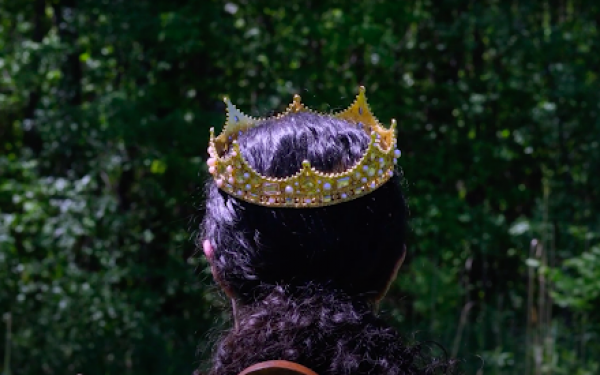There Will Be Brawl
Concordia Graduates Turn Shakespearian Podcast into Literary Reality
To brawl, or not to brawl? For Concordia graduates Daniel J. Rowe and Eric Jean, there is no question.
After meeting in a Shakespeare course during their undergraduate days in 2005-2006, the pair began meeting once a week to read the playwright’s work. The ante was quickly upped, and their podcast Bard Brawl was born.
“It sort of grew and grew. This group was just made, different people would come and go, and we read through a bunch of plays,” said Rowe.
Thus far, the group has covered 24 of the Bard of Avon’s 38 credited plays, sharing in ye olde tradition of reading and acting together, without ever taking themselves too seriously.
“We just think that there’s sort of a climate around Shakespeare and other well-known authors—this idea that you have to have some sort of special understanding to get it,” Jean says.
“Instead of treating it with this certain amount of reverence, treating it like it’s something special—we clearly like Shakespeare and we think that he’s great and everything—but we’re also willing to make jokes about it.”
In the fall of 2012, Rowe and Jean launched their podcast, which consists of one act and one sonnet per episode, with accompanying commentary from those performing.
Even more recently, the “brawlers” stepped up their game, raising funds with an Indiegogo campaign to fund the launch of their first literary journal, aptly titled Zounds!, a Shakespearian exclamation of surprise or indignation.
The journal will feature more than just literary essays, offering poems and artwork as well as photography and graphics, all inspired by Shakespearian sources. Each edition will have a different theme, with the first focusing on Sonnets 1 to 17.
“I think it’s really cool to put the Bard Brawl perspective through various media,” said Stephanie E.M. Coleman, an original member of the reading group, a performer on the podcast and a visual artist who is currently working on the design and layout for Zounds!, which is scheduled to launch before the end of the month.
“The scenes and stories in Shakespeare are like fables or parables that you can insert into any time,” she said. “It’s sort of an endless source of inspiration, as far as artwork goes.”
This timeless variety is something that is reflected not only in the content of the journal but also in the philosophy of the brawlers—there’s something to be discovered within the Bard’s work for everyone.
“The goal and the mission has always been to not be exclusive,” Rowe said. “The best thing is when people take it for what it is. Have fun, get excited, come and read.”
The group has a history of making believers out of skeptics, turning reluctant readers, dragged by a friend or significant other, into lead characters within a few weeks, a testament to the universal appeal of the work.
Jean cites the variety in experience and backgrounds in the group as a serious asset.
“We also find [that] sometimes people who don’t have any sort of formal training in this stuff actually have really interesting insights, because they don’t have all this baggage about what you’re supposed to be able to say about these things,” he said.
That even includes Rowe’s own parents, who joined the recording for the most recent play tackled in the podcast, Timon of Athens.
“The idea is we’re not critics, we don’t like to rip things down, which is why it’s really open, anyone can come,” Rowe said.
In the meantime, the readings and podcasts continue, with an eye set on reaching the peak of an Elizabethan Mount Everest.
“First, we have to get through the whole canon, of course,” Rowe said. “Then we can write that on our tombstones. That’s all anyone wants, right?”

_799_1050_90.jpg)

_600_375_90_s_c1.jpg)


__600_375_90_s_c1.jpg)